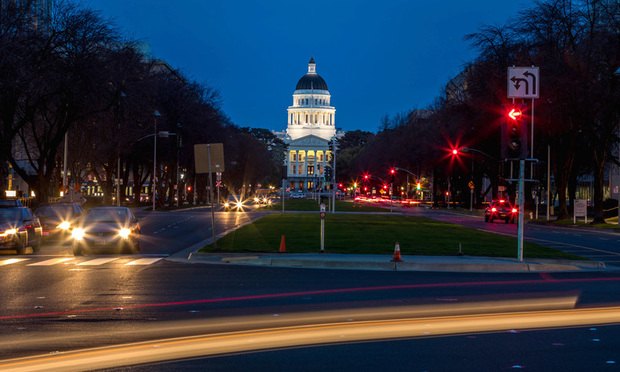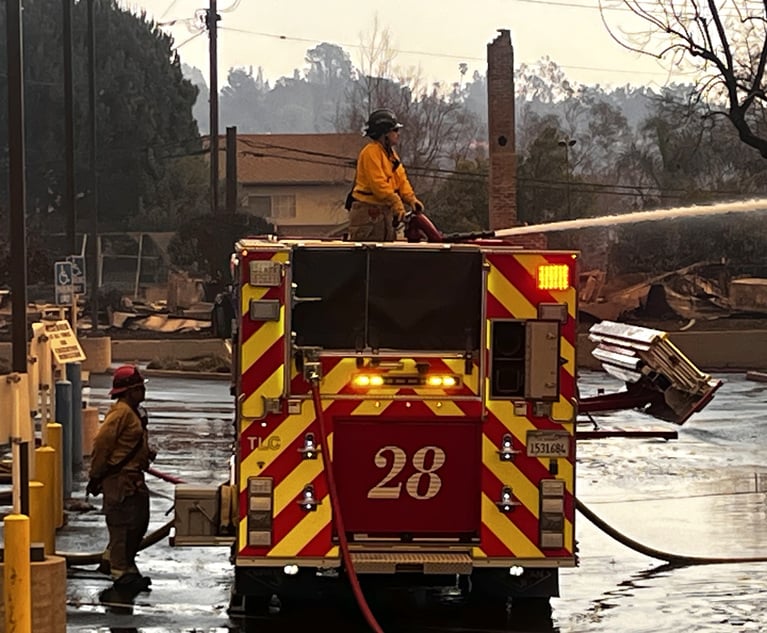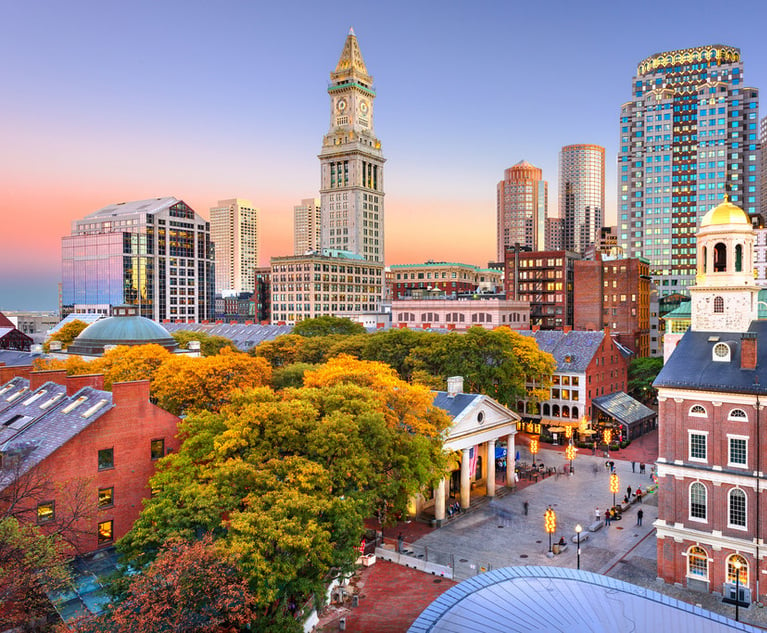From California to D.C., These Are the Proposals for Reforming Law Firm Ownership
Change is in the air as five jurisdictions consider new regulations that could affect the entire industry.
February 24, 2020 at 03:46 PM
2 minute read
 Sacramento, California.
Sacramento, California.
In The American Lawyer's March cover story, Dan Packel and Dylan Jackson closely examined the fight to reform the rules around law firm ownership and related issues—and the effect it could have on the industry's many stakeholders as the dominoes begin to fall. These are the jurisdictions whose regulatory reviews could get the ball rolling:
California
The Task Force on Access Through Innovation of Legal Services is preparing its final report, after an earlier set of recommendations offered both a more modest and a bolder approach to the question of fee-sharing with nonlawyers. If approved by the board of trustees, the proposal would then go to the California Supreme Court.
Utah
In August 2019, the Utah Supreme Court adopted the recommendations of the Implementation Task Force on Regulatory Reform. One track focuses on loosening restrictions on lawyers, while the other aims to create a new regulatory system focused on services, not just lawyers. The task force is establishing a regulatory sandbox in which innovators can try new approaches and outcomes will be closely observed.
Arizona
The state's Task Force on the Delivery of Legal Services in October 2019 recommended eliminating the prohibition on partnerships with nonlawyers. A petition to change the rules and implement a new regulatory framework was filed with the Arizona Supreme Court at the end of January, and public comments are due at the end of March. The court is expected to consider the petition in August.
Illinois
The Chicago Bar Association and the Chicago Bar Foundation announced in October 2019 a task force focused on updating Illinois' rules. They are aiming to have recommendations to the Illinois Supreme Court by the fall.
Washington, D.C.
The District of Columbia is already the sole jurisdiction in the country to allow some form of nonlawyer ownership. The D.C. Bar Global Legal Practice Committee announced in January it would consider expanding what is permissible. Public comments are due in mid-March, and any recommendations will first go to the bar's board of governors before potential submission to the D.C. Court of Appeals.
This content has been archived. It is available through our partners, LexisNexis® and Bloomberg Law.
To view this content, please continue to their sites.
Not a Lexis Subscriber?
Subscribe Now
Not a Bloomberg Law Subscriber?
Subscribe Now
NOT FOR REPRINT
© 2025 ALM Global, LLC, All Rights Reserved. Request academic re-use from www.copyright.com. All other uses, submit a request to [email protected]. For more information visit Asset & Logo Licensing.
You Might Like
View All
AI's Place in Big Law Broadens, As Firms Embrace Fresh Uses of the Technology

'Nerve-Wracking': Fires Disrupting but Not Halting Work of Distributed Firms' LA Lawyers
3 minute read
Trending Stories
Who Got The Work
J. Brugh Lower of Gibbons has entered an appearance for industrial equipment supplier Devco Corporation in a pending trademark infringement lawsuit. The suit, accusing the defendant of selling knock-off Graco products, was filed Dec. 18 in New Jersey District Court by Rivkin Radler on behalf of Graco Inc. and Graco Minnesota. The case, assigned to U.S. District Judge Zahid N. Quraishi, is 3:24-cv-11294, Graco Inc. et al v. Devco Corporation.
Who Got The Work
Rebecca Maller-Stein and Kent A. Yalowitz of Arnold & Porter Kaye Scholer have entered their appearances for Hanaco Venture Capital and its executives, Lior Prosor and David Frankel, in a pending securities lawsuit. The action, filed on Dec. 24 in New York Southern District Court by Zell, Aron & Co. on behalf of Goldeneye Advisors, accuses the defendants of negligently and fraudulently managing the plaintiff's $1 million investment. The case, assigned to U.S. District Judge Vernon S. Broderick, is 1:24-cv-09918, Goldeneye Advisors, LLC v. Hanaco Venture Capital, Ltd. et al.
Who Got The Work
Attorneys from A&O Shearman has stepped in as defense counsel for Toronto-Dominion Bank and other defendants in a pending securities class action. The suit, filed Dec. 11 in New York Southern District Court by Bleichmar Fonti & Auld, accuses the defendants of concealing the bank's 'pervasive' deficiencies in regards to its compliance with the Bank Secrecy Act and the quality of its anti-money laundering controls. The case, assigned to U.S. District Judge Arun Subramanian, is 1:24-cv-09445, Gonzalez v. The Toronto-Dominion Bank et al.
Who Got The Work
Crown Castle International, a Pennsylvania company providing shared communications infrastructure, has turned to Luke D. Wolf of Gordon Rees Scully Mansukhani to fend off a pending breach-of-contract lawsuit. The court action, filed Nov. 25 in Michigan Eastern District Court by Hooper Hathaway PC on behalf of The Town Residences LLC, accuses Crown Castle of failing to transfer approximately $30,000 in utility payments from T-Mobile in breach of a roof-top lease and assignment agreement. The case, assigned to U.S. District Judge Susan K. Declercq, is 2:24-cv-13131, The Town Residences LLC v. T-Mobile US, Inc. et al.
Who Got The Work
Wilfred P. Coronato and Daniel M. Schwartz of McCarter & English have stepped in as defense counsel to Electrolux Home Products Inc. in a pending product liability lawsuit. The court action, filed Nov. 26 in New York Eastern District Court by Poulos Lopiccolo PC and Nagel Rice LLP on behalf of David Stern, alleges that the defendant's refrigerators’ drawers and shelving repeatedly break and fall apart within months after purchase. The case, assigned to U.S. District Judge Joan M. Azrack, is 2:24-cv-08204, Stern v. Electrolux Home Products, Inc.
Featured Firms
Law Offices of Gary Martin Hays & Associates, P.C.
(470) 294-1674
Law Offices of Mark E. Salomone
(857) 444-6468
Smith & Hassler
(713) 739-1250










